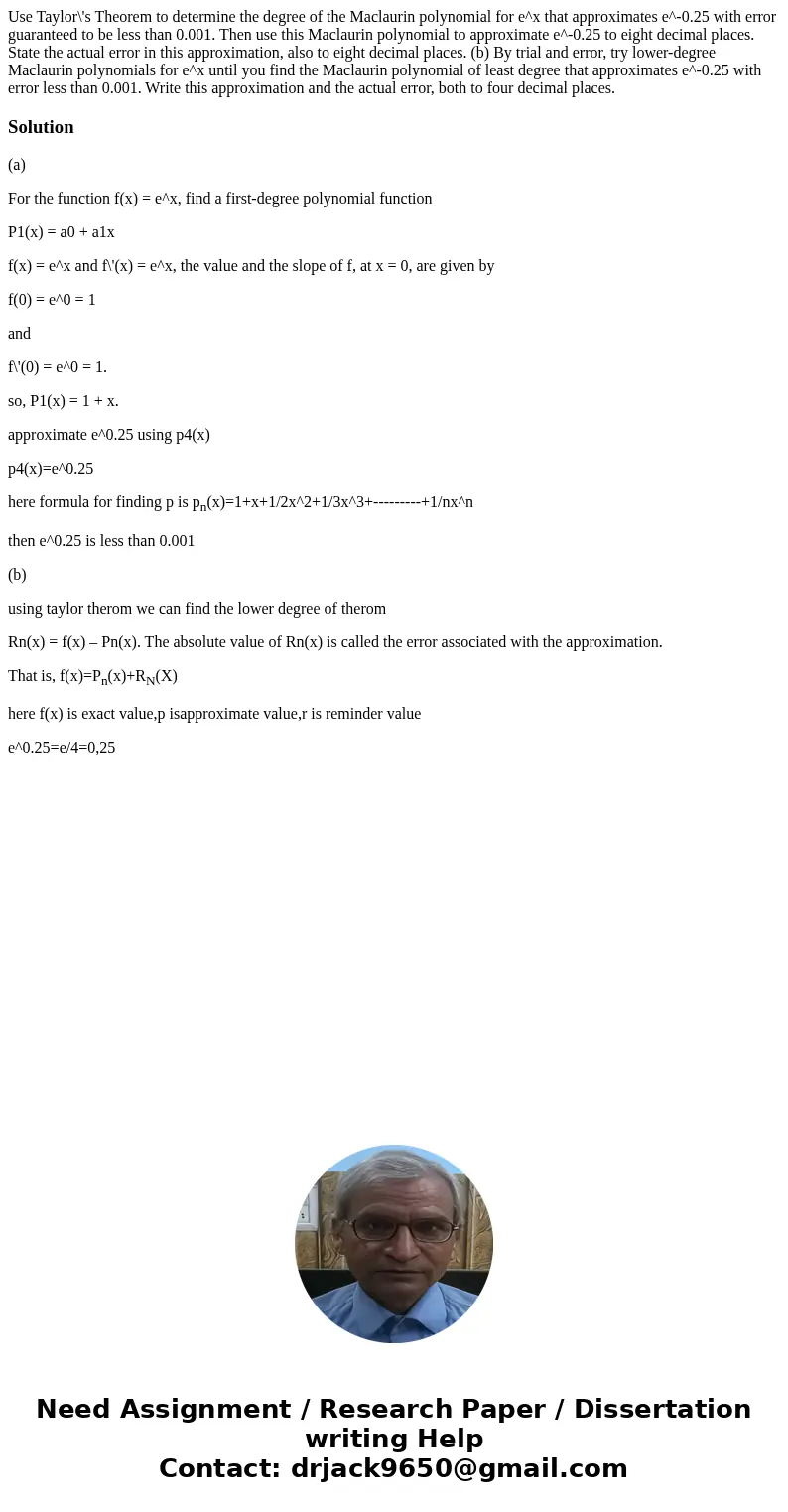Use Taylors Theorem to determine the degree of the Maclaurin
Use Taylor\'s Theorem to determine the degree of the Maclaurin polynomial for e^x that approximates e^-0.25 with error guaranteed to be less than 0.001. Then use this Maclaurin polynomial to approximate e^-0.25 to eight decimal places. State the actual error in this approximation, also to eight decimal places. (b) By trial and error, try lower-degree Maclaurin polynomials for e^x until you find the Maclaurin polynomial of least degree that approximates e^-0.25 with error less than 0.001. Write this approximation and the actual error, both to four decimal places. 
Solution
(a)
For the function f(x) = e^x, find a first-degree polynomial function
P1(x) = a0 + a1x
f(x) = e^x and f\'(x) = e^x, the value and the slope of f, at x = 0, are given by
f(0) = e^0 = 1
and
f\'(0) = e^0 = 1.
so, P1(x) = 1 + x.
approximate e^0.25 using p4(x)
p4(x)=e^0.25
here formula for finding p is pn(x)=1+x+1/2x^2+1/3x^3+---------+1/nx^n
then e^0.25 is less than 0.001
(b)
using taylor therom we can find the lower degree of therom
Rn(x) = f(x) – Pn(x). The absolute value of Rn(x) is called the error associated with the approximation.
That is, f(x)=Pn(x)+RN(X)
here f(x) is exact value,p isapproximate value,r is reminder value
e^0.25=e/4=0,25

 Homework Sourse
Homework Sourse